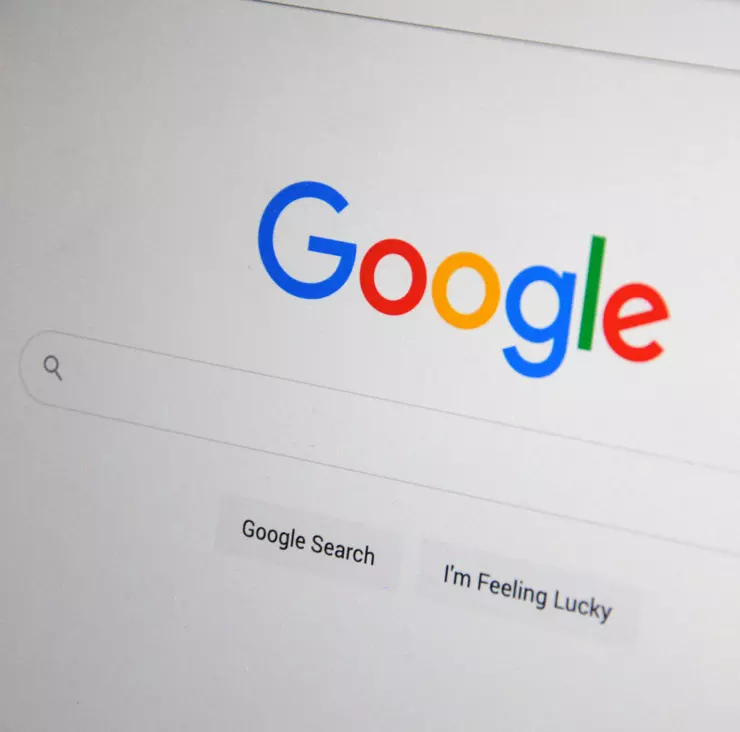10 Critical Questions to Ask Your Web Developer Before Hiring to Avoid Costly Mistakes
Hiring the right web developer can be a game-changer for your business. Whether you’re looking to build a new business website or improve an existing one, a good developer will ensure the site meets your goals, functions smoothly, and supports your online presence. However, not all developers are created equal, and finding the perfect fit for your web design and development project takes careful consideration.
From understanding technical expertise to assessing soft skills, this guide will help you identify the skills to look for in a web developer, key questions to ask, and how to ensure they align with your business needs.

Why Choosing the Right Web Developer Matters
A well-built website is the backbone of your online success. Whether you need a small business website or a complex web application, the right developer will combine technical skills, creativity, and problem-solving to deliver a product that performs.
A great web developer ensures:
- A site optimised for speed, performance, and search engines.
- A user-friendly design and development process that delivers the best user experience.
- Clean, maintainable code that supports scalability as your business grows.
On the flip side, hiring the wrong developer may leave you with a slow, buggy site that frustrates visitors and costs you leads. That’s why understanding what to look for when hiring a developer is essential.
Key Skills to Look for in a Web Developer
1. Technical Expertise
When hiring a web developer, technical skills are non-negotiable. These include:
- HTML, CSS, and JavaScript: These core languages form the foundation of any modern website. A good developer must master these.
- Responsive Design: Websites need to look and function seamlessly across all devices, from desktops to smartphones.
- Back-End Development: Skills in languages like PHP, Python, or Node.js are essential for handling the website’s server-side functionality.
- Content Management Systems (CMS): Many businesses rely on platforms like WordPress, Joomla, or Drupal. If you’re using a CMS, ensure the developer knows how to work with it.
- SEO Best Practices: A developer must know how to optimise a site for search engines, ensuring quick load times, clean code, and proper on-page optimisation.
You should also assess their familiarity with tools like Git for version control, as well as frameworks such as React, Vue, or Angular for advanced web applications.
2. Problem-Solving Abilities
Web development isn’t just about writing code—it’s about finding solutions to challenges. A great web developer should be able to troubleshoot errors, improve performance, and solve problems creatively.
Ask for examples of how they’ve tackled difficult situations in previous projects. This will give you insight into their problem-solving mindset and adaptability.
3. User Experience (UX) Focus
A website isn’t just for show; it needs to work for its users. Developers should prioritise creating a seamless, intuitive user experience by implementing:
- Easy navigation for visitors to find what they need.
- Fast loading times to reduce bounce rates.
- Accessibility features that make the website usable for all.
A good developer understands that user satisfaction leads to better conversions and business results.
4. Soft Skills and Communication
Beyond technical expertise, communication skills are critical. A web developer must be able to:
- Clearly explain complex technical details in simple terms.
- Collaborate with designers, marketers, or other team members to ensure alignment.
- Keep you informed about progress and deliverables.
The ability to listen to your ideas and translate them into a functional website is just as important as their ability to write code.
10 Questions to Ask Your Web Developer
Before hiring a developer, you need to ask the right questions to evaluate their skills, experience, and fit for your project. Here are key questions to ask your web developer:
- What is your experience with projects similar to mine?
This helps you gauge whether they’ve worked on websites like yours and can meet your requirements. - Can you show me examples of your previous work?
Reviewing a portfolio gives you insight into their style, technical ability, and attention to detail. - What tools, frameworks, and platforms do you specialise in?
Ensure their expertise matches the needs of your project. For example, if you’re using WordPress, they should be familiar with its functionality and plugins. - How do you ensure websites are optimised for SEO and performance?
A good developer will prioritise fast load times, clean code, and technical search engine optimisation. - What is your process for testing and quality assurance?
Developers should test for bugs, cross-browser compatibility, and responsive design before launching the site. - Do you offer ongoing maintenance and updates?
Websites need regular updates for security and functionality. Clarify if they provide post-launch support. - What is your estimated timeline and budget for this project?
Understanding their timeline and pricing helps you set realistic expectations and avoid surprises. - How do you handle revisions and changes during the project?
Ask about their process for incorporating feedback and whether revisions come with additional costs. - How do you ensure the website remains secure and up-to-date post-launch?
Website security is critical, especially with increasing online threats. Ask the developer about their approach to security, such as SSL certificates, regular updates, and handling vulnerabilities. Post-launch, confirm they offer ongoing maintenance to keep the site secure and functional. - What kind of training or documentation do you provide after the website is delivered?
Once your site goes live, you’ll need to know how to manage it. A professional developer should provide basic training or documentation on how to update content, make small changes, or use any specific tools like a CMS (e.g., WordPress). This helps you maintain control over your website without relying on them for every minor update.
These questions will help you vet developers, assess their skills, and ensure they align with your business needs.
Freelance Developer vs Development Agency
When looking to hire a web developer, you’ll often face the choice between hiring a freelance developer or partnering with a web development company. Here’s how to weigh the two options:
Freelance Developers
Freelancers are often more affordable and ideal for smaller, less complex projects. They offer flexibility, but their capacity is limited. If you’re building a small business website or need something done quickly, a freelancer may suffice.
However, freelancers often work alone, which can slow down timelines if they’re juggling multiple clients. They may also lack the diverse skills a web development team brings.
Web Development Agencies
Web development companies provide access to a team of experts, including developers, designers, and SEO specialists. They’re equipped to handle larger, more complex projects and often follow structured processes to ensure on-time delivery.
Agencies may cost more, but they offer additional benefits like:
- Comprehensive project management.
- Quality assurance testing to catch bugs.
- Ongoing maintenance and support.
If your project requires scalability, a development agency is the safer, long-term choice.
Red Flags to Watch Out For
Finding the right web developer requires careful vetting. Watch for these red flags during your search:
- Lack of a Portfolio: If they can’t show past work, they may lack experience.
- Poor Communication: Unclear responses or delays in communication signal potential problems down the line.
- Unrealistic Promises: Be wary of developers who promise instant results or extremely low costs—it usually leads to poor quality.
- No Focus on SEO or Performance: If they don’t mention optimisation for search engines, they may not build a site that performs well online.
How to Find the Right Web Developer for Your Business
Start by clearly defining your project requirements. Outline what kind of website you need, its functionality, and your overall goals. Whether it’s a business website, e-commerce platform, or custom application, having clarity will help you communicate your needs effectively.
Next, research potential developers. Look for professionals with relevant experience, strong portfolios, and positive client reviews. Don’t hesitate to interview multiple developers or agencies to find the right fit.
Finally, set expectations for timelines, budgets, and deliverables. Make sure both parties are aligned from the start to avoid misunderstandings.
The Bottom Line: Hiring the Right Web Developer
Choosing the right web developer is critical for the success of your web design project. The ideal candidate should have a balance of technical expertise, problem-solving skills, and effective communication. They should understand how to deliver a high-quality website that meets your goals and provides the best user experience possible.
By focusing on the skills to look for in a developer, asking the right questions, and identifying red flags, you’ll be able to find a web developer who aligns with your business vision. Whether you choose a freelancer or a web development company, ensure they have the expertise and reliability to deliver a site that works for you now and in the future.
A great developer doesn’t just write code—they help build the foundation of your business’s online success.



